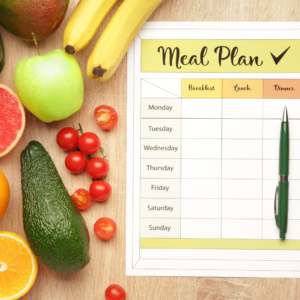 Meal planning is the key to keeping your family eating healthy. It’s an important part of making sure you and your family are getting the nutrition you need and that you’re not spending too much money on food. Meal planning allows you to plan ahead for meals and snacks, which helps reduce anxiety and stress. It also gets everyone in the habit of being prepared with healthy options.
Meal planning is the key to keeping your family eating healthy. It’s an important part of making sure you and your family are getting the nutrition you need and that you’re not spending too much money on food. Meal planning allows you to plan ahead for meals and snacks, which helps reduce anxiety and stress. It also gets everyone in the habit of being prepared with healthy options.
Here are some of the many benefits of meal planning:
Saving money
Meal planning is a great way to save money on groceries. By planning out what you’re going to buy in advance and sticking with those items, you can avoid making impulse buys at the store and stay within your budget. If you have a meal plan in place, that means you won’t end up buying more ingredients than you need for any given meal — or worse yet, throwing away food because it goes bad before you have a chance to use it.
Less stress
When there are hungry kids staring at their empty plates at dinner time, there can be quite a bit of stress involved in making sure everyone gets fed. Meal planning helps take some of that pressure off by ensuring that there will be something on the table when dinnertime rolls around — even if it isn’t exactly what they were expecting!
Saving time
Meal planning means shopping and cooking in advance, which means you’ll have more time during the week to enjoy other activities like reading, playing with your kids, or exercising.
Meal planning tips:
- Make sure everyone in the family eats a variety of foods (vegetables, fruits, grains, protein). This helps ensure that everyone gets all the nutrients they need each day.
- Eat at least one meal together as a family each day — even if it’s just a quick bite before bedtime!
- Don’t fixate on eating out less often or cutting back on sweets and snacks; instead, focus on making healthy choices when you do eat out or indulge in desserts or snacks.
- Pick one weeknight and make that the night you bulk cook all of your meals for the rest of the week. Once that week is over, repeat the process. This way, you’ll know exactly what you’ll be having for dinner each night — no more picking something up in a rush on the way home from work. Lack of planning increases the impulse for unhealthy picks like fast food.
- Try one-pot meals or other dishes that require minimal prep work and cleanup time so that it doesn’t feel overwhelming when you’re hungry and tired after work.
- Plan ahead for special events. If you have an important event coming up — say a holiday party or family reunion — plan out your menu in advance, so you don’t get stuck without an idea when it comes time to cook!
It can be time-consuming and expensive to eat out all the time, so meal planning is a financially responsible and efficient way to feed your family. Preparing large batches of food in advance also saves you time later in the week when you’re running around doing errands. Meal planning is a great way to plan healthier meals for yourself and your family. You can easily swap out high-calorie or unhealthy ingredients with their lower-calorie counterparts and avoid going to fast food joints altogether. Lastly, don’t think that meal planning has to be boring—it can be fun!
